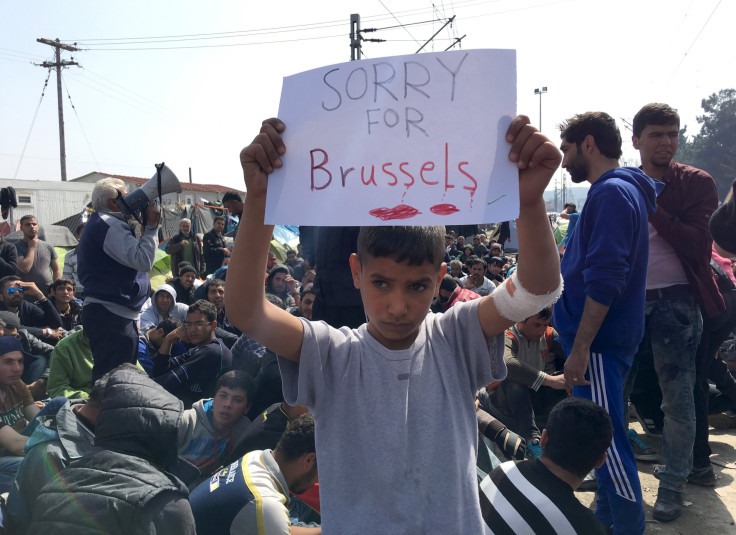Muslims To Blame For Brussels Terror Attacks? UN Warns Against Refugee Backlash Amid Islamophobia Debate

As thousands of refugees continue to cross into Europe fleeing conflicts in the Middle East and Africa, United Nations officials warned Tuesday about a potential backlash following the terror attacks in Brussels.
“To lump everyone together and say refugees are posing a security risk, that is not true,” said Amin Awad, the U.N.’s refugee coordinator for Syria, the Associated Press reported. “Any sort of hostility [toward refugees] because of the Brussels attack or Paris attack is misplaced.”
At least 31 people were killed in bomb attacks Tuesday morning at the airport in the Belgian capital and a central metro station close to European Union buildings there (Brussels is the seat of the EU government). The Islamic State group, also known as ISIS, claimed responsibility.
In the U.K., controversial columnist Katie Hopkins took to Twitter to blame refugees and German Chancellor Angela Merkel, who has not backed down from her open-arms refugee policy, for the attacks. Over 1 million refugees entered Germany in 2015 alone.
“Every one of you who said refugees are welcome, if you said ‘let them in’, [then] you are responsible for Brussels. And you still can’t see,” Hopkins tweeted. She immediately faced backlash from other social media users, with one even reporting the comment to police as hate speech, The Independent reported.
Far-right French politician Marine Le Pen, who is known for her controversial and racially tinged comments, warned against Islamic fundamentalism while on a trip to Canada. Her visit in Canada has been met by protesters at several events.
“And just like I saw in France in the past, here in Canada, whoever condemns Islamic fundamentalism is accused of Islamophobia,” she said in a CBC report.
Over 1 million refugees entered Europe last year, many fleeing conflicts and repressive states, including Syria, Iraq and Afghanistan. The European Union agreed to a controversial deal with Turkey last week hoping to stop human smuggling and slow the rate of refugees crossing the Mediterranean. For each refugee Greece sends back to Turkey, the EU has agreed to resettle one Syrian refugee. If more than 72,000 refugees land in Greece in the coming weeks and months, the deal will be reevaluated. Approximately 2,000 refugees had landed in Greece since the deal went into effect, on Sunday.
The EU said it hoped Greece would begin sending back refugees by the beginning of April. The U.N.’s refugee agency pulled its staff out of detention facilities on Greek islands Tuesday saying the proper safeguards were not yet in place.
© Copyright IBTimes 2025. All rights reserved.





















